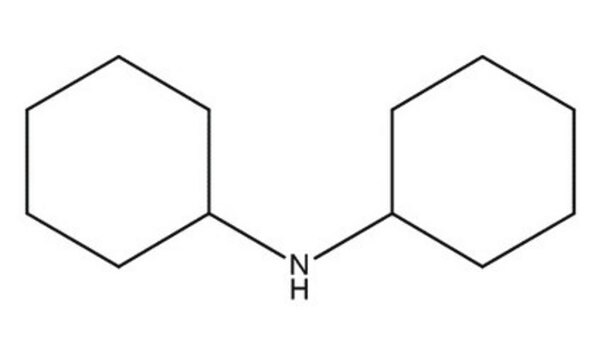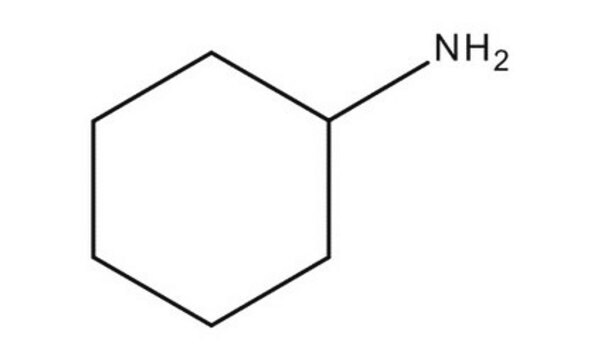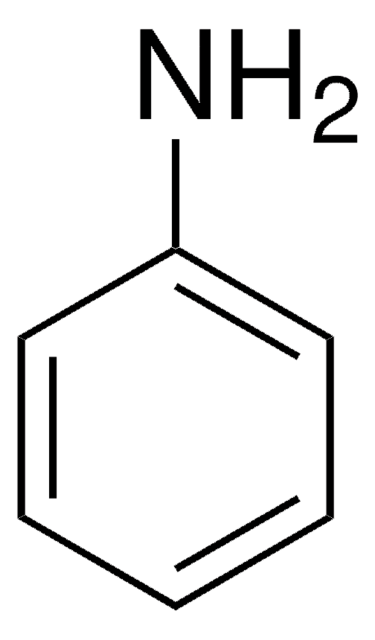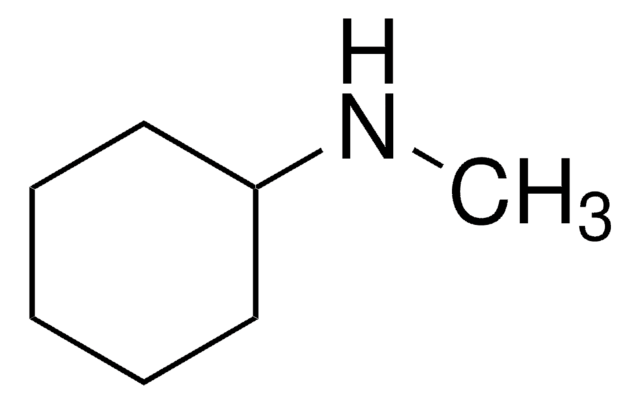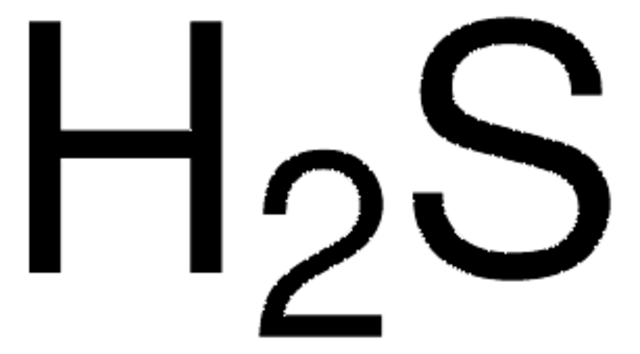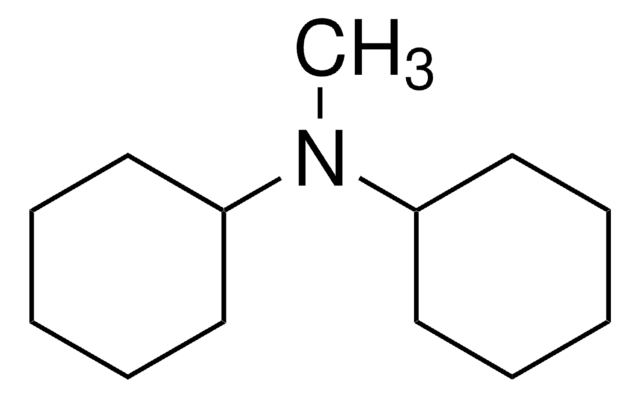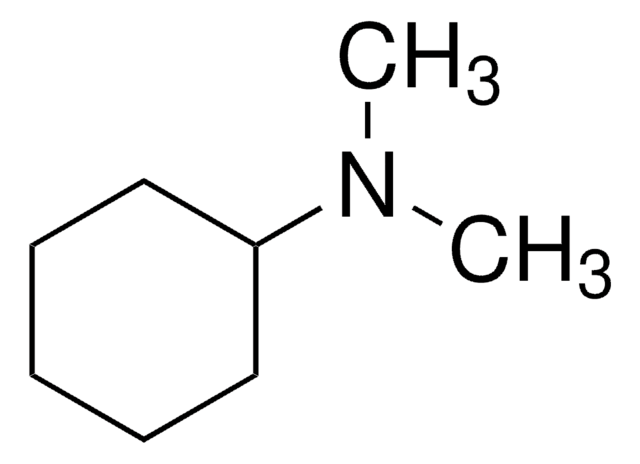185841
Dicyclohexylamine
99%
Synonym(s):
Aminodicyclohexane, Bis(cyclohexyl)amine, Dodecahydrodiphenylamine, N,N-Dicyclohexylamine, N-Cyclohexylcyclohexanamine
About This Item
Recommended Products
vapor density
6 (vs air)
Quality Level
vapor pressure
12 mmHg ( 37.7 °C)
Assay
99%
form
liquid
refractive index
n20/D 1.484 (lit.)
bp
117-120 °C/10 mmHg
256 °C (lit.)
mp
−2 °C (lit.)
solubility
organic solvents: soluble
water: very slightly soluble
density
0.912 g/mL at 20 °C (lit.)
SMILES string
C1CCC(CC1)NC2CCCCC2
InChI
1S/C12H23N/c1-3-7-11(8-4-1)13-12-9-5-2-6-10-12/h11-13H,1-10H2
InChI key
XBPCUCUWBYBCDP-UHFFFAOYSA-N
Looking for similar products? Visit Product Comparison Guide
Related Categories
Application
Signal Word
Danger
Hazard Statements
Precautionary Statements
Hazard Classifications
Acute Tox. 3 Dermal - Acute Tox. 3 Oral - Aquatic Acute 1 - Aquatic Chronic 1 - Skin Corr. 1B
Storage Class Code
6.1C - Combustible acute toxic Cat.3 / toxic compounds or compounds which causing chronic effects
WGK
WGK 2
Flash Point(F)
204.8 °F - closed cup
Flash Point(C)
96 °C - closed cup
Personal Protective Equipment
Choose from one of the most recent versions:
Already Own This Product?
Find documentation for the products that you have recently purchased in the Document Library.
Customers Also Viewed
Our team of scientists has experience in all areas of research including Life Science, Material Science, Chemical Synthesis, Chromatography, Analytical and many others.
Contact Technical Service
